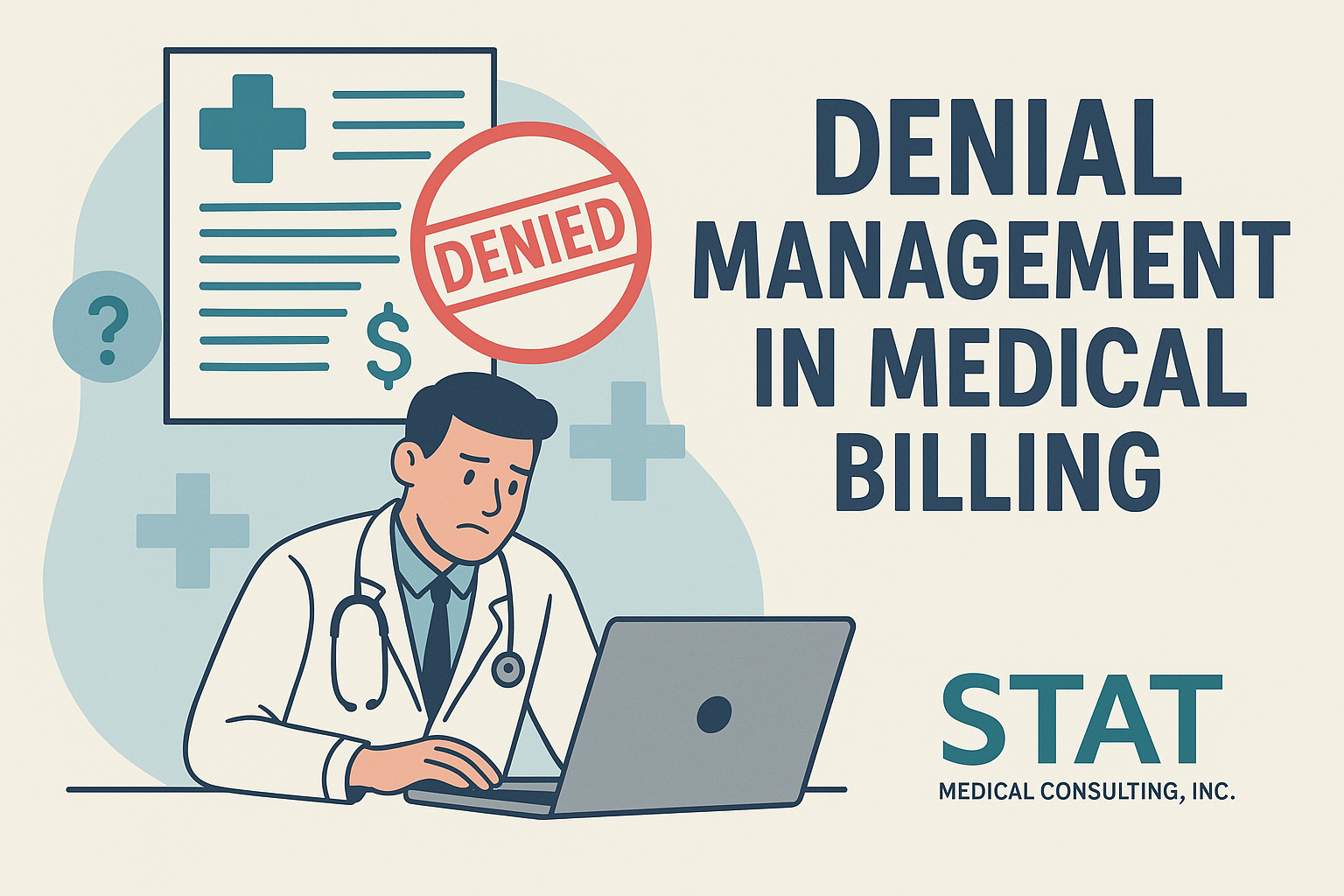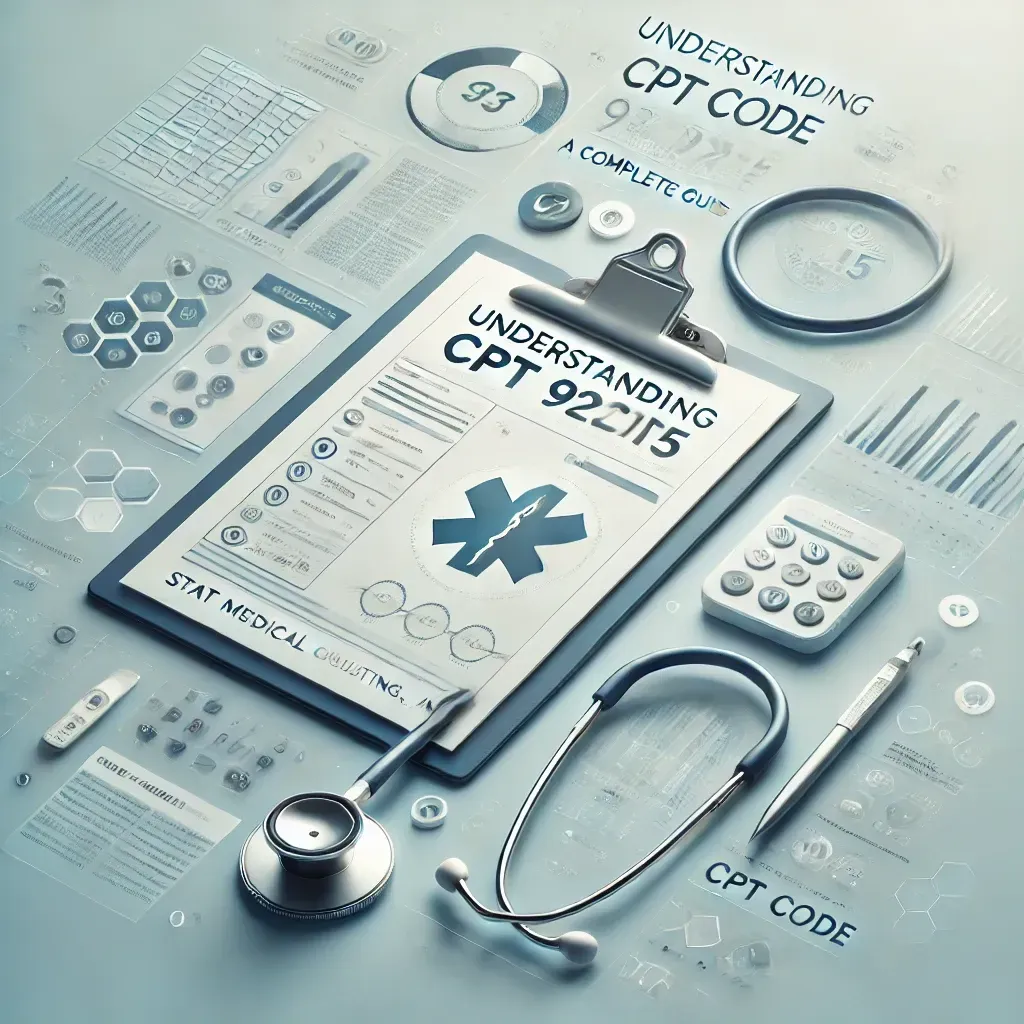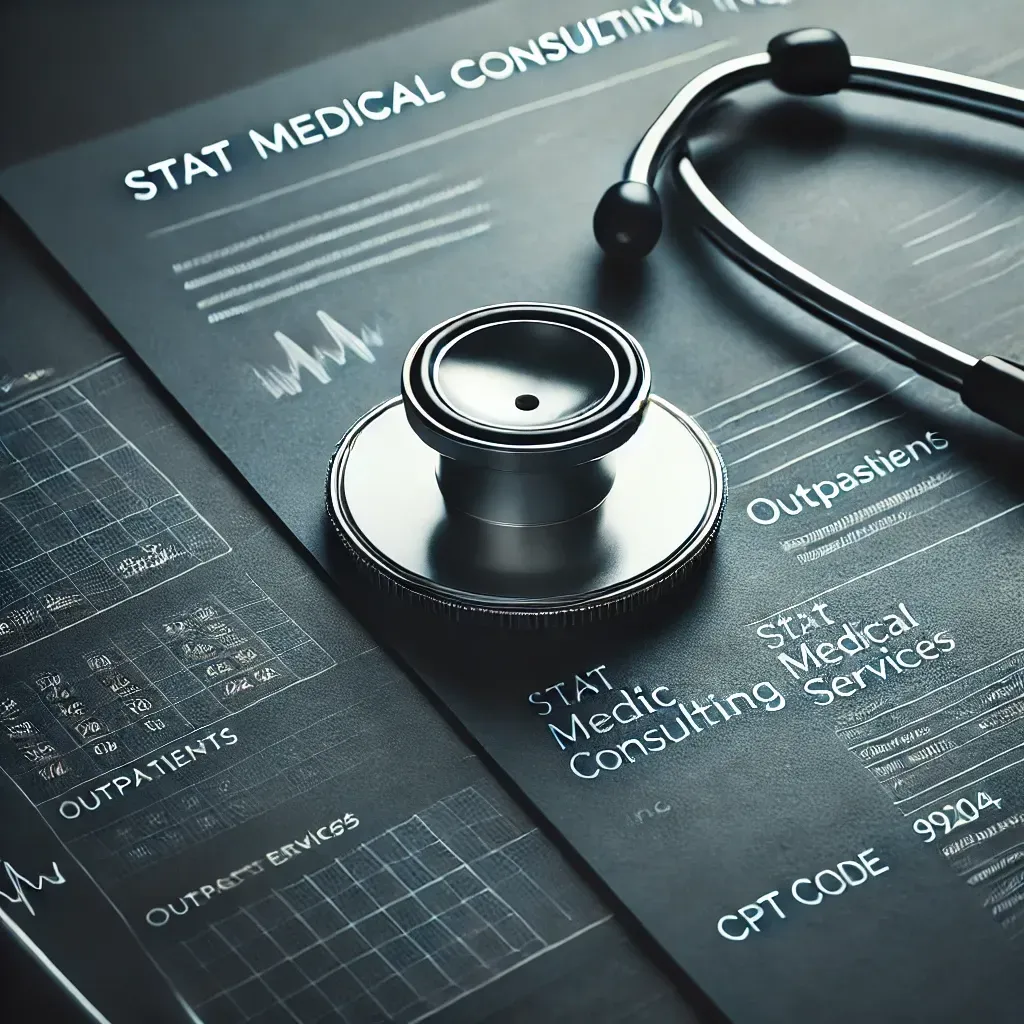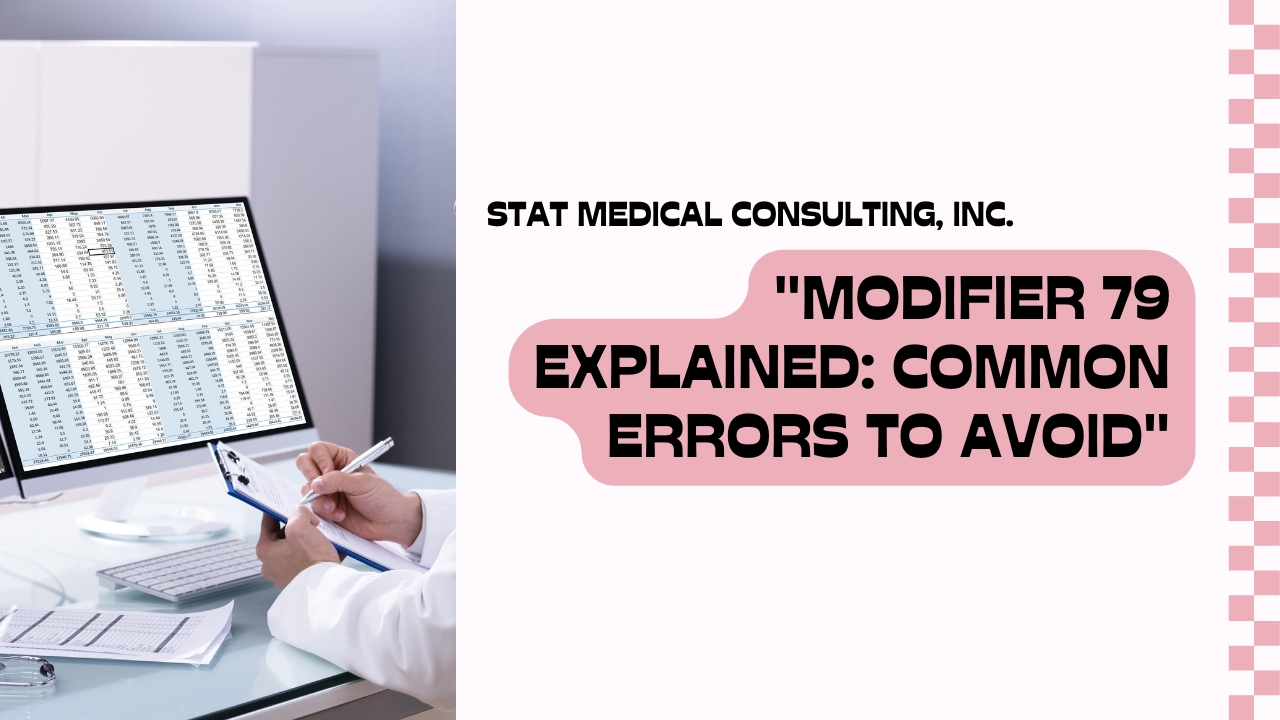Chronic Care Management (CCM)
Medicare Chronic Care Management (CCM): Quick Guide for Medical Billing Professionals
Chronic Care Management (CCM) is integral in addressing the needs of patients with multiple chronic conditions. The Centers for Medicare & Medicaid Services (CMS) recognizes the importance of CCM in primary care, aiming to improve patient outcomes while managing costs effectively. For medical professionals, efficiently integrating CCM services within practice operations requires an understanding of its coding, documentation, and compliance nuances to ensure sustainable and effective care.
Medicare CCM Requirements and Billing Codes
Medicare reimburses for CCM services provided to patients with two or more chronic conditions, such as diabetes or heart disease, expected to persist at least 12 months or until the patient's death. To optimize revenue and compliance, practitioners need to be well-versed in CCM’s specific CPT codes and billing requirements.
Here’s a breakdown:
- CPT Code 99490: This code covers non-complex CCM services, involving 20 minutes of clinical staff time in care coordination for patients. Common chronic conditions that may apply include hypertension, asthma, or osteoarthritis. Documentation of non-face-to-face interactions, care plan reviews, and patient follow-ups are required.
- CPT Code 99439: Used to bill for each additional 20-minute segment of non-complex CCM by clinical staff, in conjunction with CPT 99490. This allows practices to account for extended care coordination for patients with multiple chronic conditions, such as chronic obstructive pulmonary disease (COPD) or depression.
- CPT Code 99487: Covers complex CCM services, requiring at least 60 minutes of clinical time and involving moderate- to high-complexity medical decision-making. Chronic conditions applicable to this code may include congestive heart failure, complex diabetes management, or chronic kidney disease. Complex CCM must reflect an in-depth review and modification of the patient’s care plan, accommodating evolving needs.
- CPT Code 99489: For each additional 30-minute increment of complex CCM services, billed alongside CPT 99487. This code can be applied to patients with conditions such as multiple sclerosis or active cancer treatment.
- CPT Code 99491: Used when a physician or other qualified healthcare professional personally provides at least 30 minutes of care management, differentiating it from non-physician-delivered services. Common diagnoses for this code may include chronic pain syndromes or severe mental health conditions.
CCM Documentation
To ensure compliance and optimal reimbursement, meticulous documentation is essential. The following elements must be present in the patient’s electronic health record (EHR):
- Personalized Care Plan: A certified EHR must house a comprehensive, individualized care plan accessible to patients. This plan should reflect current diagnoses, treatment strategies, medications, and health goals.
- 24/7 Access to the Care Team: Patients under CCM should have around-the-clock access to healthcare professionals for urgent needs, typically facilitated through after-hours contact options.
- Care Transitions and Medication Management: Documenting each care transition—whether hospital discharge, specialist referral, or new medication prescription—is critical. Effective medication management, especially for patients with complex treatment regimens, mitigates risks of adverse reactions or compliance issues.
- Non-Face-to-Face Communication: Medicare mandates enhanced communication between patients and providers, including phone calls, secure messages, and other virtual interactions that support continuity of care.
Workflow Integration for Effective CCM Management
Successful CCM integration within a practice requires a strategic approach, balancing patient care and operational efficiency. The following are best practices for managing CCM services smoothly:
- Identify Eligible Patients Systematically: Use your EHR system to flag Medicare Part B patients with qualifying chronic conditions. Risk stratification tools can be instrumental in identifying high-priority cases, particularly those at risk of hospitalization or emergency visits.
- Automate Documentation and Reporting: Leverage EHR capabilities to document time spent on CCM, interactions, and care plan updates. Automation can streamline billing, ensuring that required data aligns with CMS guidelines without manual tracking.
- Define Roles Within the Care Team: Assign CCM responsibilities to specific team members—typically clinical staff—who can carry out non-face-to-face interactions and ongoing care coordination. Clear role delineation improves accountability and efficiency within CCM workflows.
- Implement Regular Patient Check-ins: Proactive check-ins help maintain an accurate record of patient status and identify potential complications early. These interactions not only satisfy CMS requirements but also foster stronger patient relationships, essential for improving adherence and outcomes.
Reimbursement Opportunities with Chronic Care Management
By understanding and implementing CCM services effectively, practices can increase revenue while enhancing care quality. Each service tier in CCM—non-complex and complex—offers different reimbursement levels. Maximizing reimbursement requires strict adherence to documentation requirements, time logs, and correct code application. Furthermore, proper utilization of additional CPT codes (99439 and 99489) ensures that extended services are recognized.
Additionally, offering CCM services aligns with Medicare's shift towards value-based care, where payment models prioritize the quality of outcomes over the quantity of services. Practices that successfully implement and document CCM can improve their quality scores, benefiting from potential incentives linked to value-based care programs.
Addressing Common Challenges in CCM
Despite the benefits, practices often face challenges when managing CCM services. Here’s how to address key hurdles:
- Maintaining Compliance and Accurate Billing: Billing errors can result in denied claims or audits. Ensure your billing team is trained in the nuances of CCM codes and maintain an internal checklist for documentation.
- Managing Patient Consent: Medicare requires documented patient consent for CCM services, either verbal or written. To streamline this, integrate consent into initial patient assessments, explaining the benefits of CCM in managing chronic conditions.
- Time Tracking and Reporting: Accurate time tracking is crucial for compliance. Utilize EHR features or time-tracking software to record clinical staff time on non-face-to-face CCM activities, ensuring the minimum time requirement is met each month.
- Patient Engagement: Patients with chronic conditions benefit from regular engagement, but not all are receptive. Educate patients about the value of CCM, emphasizing its role in preventing complications and reducing hospitalizations. Engaged patients are more likely to participate actively in their care, simplifying CCM management.
Value of Chronic Care Management
Beyond financial gains, effective CCM offers a pathway to meaningful patient relationships and improved health outcomes. CCM services enable practices to provide holistic, coordinated care that extends beyond the office, addressing the complex needs of chronically ill patients. In a healthcare landscape increasingly focused on value-based care, CCM empowers practices to meet patient demands for comprehensive support while enhancing practice efficiency and financial sustainability.
For medical professionals, CCM represents not just a billing opportunity but a proactive approach to healthcare, aligning with CMS’s goals of reducing hospitalizations, improving patient satisfaction, and lowering overall healthcare costs. Embracing CCM within your practice signifies a commitment to high-quality, patient-centered care, driving both immediate and long-term benefits for patients and providers alike.
Next Steps for Implementing CCM in Your Practice
Integrating CCM into your practice requires planning, investment in training, and perhaps adjustments to workflow. Consider the following actionable steps:
- Evaluate Your EHR’s Capabilities: Ensure your EHR system supports CCM documentation, time tracking, and communication features.
- Establish a Dedicated CCM Team: Depending on practice size, designate staff to focus on CCM, handling documentation, patient outreach, and billing compliance.
- Develop Patient Education Materials: Educate patients on CCM benefits and set expectations for participation, making them active partners in their care.
- Monitor Performance and Adjust: Regularly review CCM performance metrics, patient feedback, and billing outcomes to optimize service delivery.
By following these best practices, medical professionals can successfully implement CCM services, enhance patient care quality, and achieve meaningful outcomes both clinically and financially.
Ensuring Excellence in Chronic Care Management
As we draw this discussion to a close, it's crucial to recognize the importance of being vigilant about chronic care management procedures, coding, and billing practices. These elements are vital not only for enhancing patient outcomes but also for ensuring the financial viability of healthcare organizations.
At Stat Medical Consulting Inc., we specialize in addressing the complexities of chronic care management coding and billing. With over 30 years of experience supporting leading healthcare providers across California, we have consistently improved reimbursement processes, maintaining a remarkably low denial ratio of just 1%. Our dedicated team of full-time consultants is here to provide free billing analyses to identify and rectify any challenges you may face.
We excel at revitalizing previously rejected reimbursement cases, ensuring you receive the complete payments owed to your practice. If you're seeking expert assistance in coding or billing, reach out to us and discover the benefits of working with seasoned professionals.











